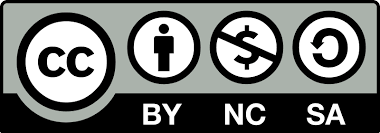Univerbizates in Media and Journalistic Texts
Ivana Kolářová
Abstract
Univerbization (or condensing) - fusing of multiverbal lexemes into one-word lexemes - is a word-forming process that is frequently used not only in contemporary spoken Czech texts, but also in the written texts. Linguistic research in the last 40-50 years proved that “univerbizates” are used in the joumalistic and media texts very often. The aim of the paper is to present univerbizates naming phenomena of the media and phenomena that are described in the media texts - names of persons (professions, performers), of actions and operations, names of films, plays or songs and compositions. The Czech national corpus has been used for this purpose. Results of the research are as follows - morę than 90 % univerbizates are formed by suffixation, of which nearly 75% - with the use of the -ak or -ka suffixes. They occur in various literary and colloąuial texts.
Keywords:
univerbizates, one-word lexeme, word-forming, suffix, media texts, joumalistic texts, Czech national corpusAuthors
Ivana KolářováStatistics
Downloads
License

1. Copyrights to published works are held by the University of Opole (to the collective work) and the Authors (to individual parts of the collective work that have an independent meaning).
2. Only previously undistributed works can be published in the scientific journal "Stylistics".
3. The University of Opole does not restrict the possibility of the author's further dissemination of his work on condition that the scientific journal "Stylistics" is indicated as the original place of publication and the consent of the University Publishing House.
4. Consent to the publication of the work in the scientific journal "Stylistics" is tantamount to granting the author a non-exclusive license to the University of Opole, including the right to use the work without territorial restrictions and time limits in the following fields of exploitation:
a) within the scope of recording and multiplication of the work - production of any number of copies of the work in whole or in part using a specified technique, including printing, reprography, magnetic recording and digital technique, introduction of the work into computer memory and computer networks,
b) within the scope of circulation of the original or copies on which the work has been recorded - circulation, lending or hiring of the original or copies,
c) within the scope of dissemination of the work in a manner other than specified in item 2 - making the work or its abstract available on the Internet by enabling the recipients to access the work on-line or enabling them to download the work to their own device that makes it possible to read it, placing the work in electronic databases that disseminate scientific works, including in particular the CEEOL database (Central and Eastern Online Libray) and the abstract in English in the CEJSH database (The Central Europaen Journal of Social Scienes and Humanites).
d) within the scope of creating and distributing dependent works created using the work - using them in the fields of exploitation specified in points 1-3.
5. The author is not entitled to compensation for granting the license to the work.
6. The author agrees that the University may grant further permission to use the work (sublicense) in the fields of exploitation specified in par. 2 paragraph 4.
7. The author agrees that, in connection with the distribution of the work, his or her personal information, that is, name, affiliation, and e-mail address, may be made public.
Most read articles by the same author(s)
- Ivana Kolářová , Funkce cizojazyčných prostředku v knihách Marie Kubátové , Stylistyka: Vol. 12 (2003): Wielojęzyczność a styl - Multilingualism and Style
- Ivana Kolářová , Výpovědi uvozené slovem ono, jej ich hodnocení syntaktické a stylové , Stylistyka: Vol. 14 (2005): Stylistyka i Kożyna - Stylistics and Kozhina
- Ivana Kolářová, The Metaphoric use of Czech Verbs That Indicate People s Relationship, Mental Condition and Atmosphere in the Environment , Stylistyka: Vol. 15 (2006): Styl i kultura
- , Frantisek Vsetićka, Kroky Kalliope, Olomouc: Votobia, 2003, 285 s. , Stylistyka: Vol. 13 (2004): Style and Gender
- IVANA KOLÁŘOVÁ, Odraz komunikaćnich faktoru v textech soućasne rozhlasove a televizni publicistiky , Stylistyka: Vol. 8 (1999): Styl i gatunek - Стиль и жанр - Style and Genre
- Ivana Kolářová , Humor v Čistých radostech Života Jana Šmída , Stylistyka: Vol. 10 (2001): Stylistyka dziś - Style and Humour - Stil' i ûmor
- Ivana Kolářová , Libor Pavera, Od stredoveku k romantismu. Uvahu o starśi literaturę, Filozoficko-prirodovedecka fakulta Slezske univerzity v Opave, 2000, 226 s. , Stylistyka: Vol. 10 (2001): Stylistyka dziś - Style and Humour - Stil' i ûmor
- Ivana Kolářová, František Všeticka, Možnosti Melete, Olomouc: Votobia, 2005, 285 s. , Stylistyka: Vol. 15 (2006): Styl i kultura




